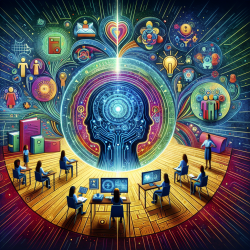HapHop-Physio is an exer-learning game designed to support cognitive therapies in children. The game utilizes a sensor mat and interactive video game elements to focus on memory and concentration therapies. It has been tested for functionality and user satisfaction, showing positive results in both areas.
Here are some key takeaways from the research and how you can apply them:
- Engage Children with Fun and Learning: HapHop-Physio integrates fun into therapy sessions, which can significantly increase children's motivation and adherence to therapy. Consider incorporating similar game-based tools that combine exercise and cognitive tasks to keep children engaged.
- Personalize Therapy: The game is designed to suit individual needs, making it adaptable for different children. Tailor your therapy sessions to each child’s specific cognitive challenges and strengths for more effective outcomes.
- Continuous Evaluation: HapHop-Physio allows for continuous monitoring and evaluation of a child's progress. Implement tools that provide ongoing feedback and data collection to adjust therapy plans as needed.
Moreover, the research highlights the importance of multidisciplinary collaboration in developing effective therapeutic tools. Working with software developers, cognitive therapists, and educational experts can lead to innovative solutions that are both effective and enjoyable for children.
Encouraging further research in this area can help refine these tools and expand their applications. Consider participating in studies or collaborating with research institutions to contribute to the development of new technologies that support cognitive therapies.
To read the original research paper, please follow this link: HapHop-Physio: a computer game to support cognitive therapies in children.










